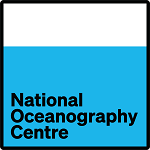
National Oceanography Centre (NOC)
The NOC is the UK’s leading institution for integrated coastal and deep-ocean research. With two sites, in Southampton and Liverpool, NOC undertakes and facilitates world-class agenda-setting scientific research to understand the global ocean by solving challenging multidisciplinary, large scale, long-term marine science problems to underpin international and UK public policy, business, and wider society outcomes.
NOC is a truly multi-disciplined centre; research encompasses Marine Geoscience, Marine Physics and Ocean Climate, Marine Systems Modelling, Ocean Biogeochemistry and Ecosystems, and Ocean Technology and Engineering. NOC manages two state of the art research ships and is home to the British Oceanographic Data Centre, the British Ocean Sediment Core Research Facility, the National Marine Equipment Pool, and Europe’s largest fleet of autonomous and robotic vehicles.
 Plymouth Marine Laboratory (PML)
Plymouth Marine Laboratory (PML)
PML is a Centre of Excellence in Marine Science & Technology carrying out research in the marine environment from estuaries to the open ocean. PML has an internationally recognised track record in biogeochemical cycling research, using an interdisciplinary approach to study chemical and biological processes in the ocean as well as chemical exchanges with the atmosphere. Research areas include biodiversity and ecosystem function, coastal production processes, ecosystem modelling and forecasting, long-term observations, marine biogeochemical cycles, and valuing the marine environment.
 Scottish Association for Marine Science (SAMS)
Scottish Association for Marine Science (SAMS)
The Scottish Association for Marine Science (SAMS) is Scotland’s largest and oldest independent marine science organisation, delivering marine science for a productive and sustainably managed marine environment through innovative research, education and engagement with society. Based near Oban on the Scottish west coast, SAMS marine research and teaching portfolio is diverse in topic and discipline, global in outlook, project locations and relevance, and delivered in partnership with academic, business, government, regulatory, voluntary and civic society colleagues.
 Heriot-Watt University
Heriot-Watt University
Founded in 1821, Heriot-Watt has a rich heritage and an established reputation as a leading research-led university and provider of education around the world, ranked 1st in Scotland and 9th university in the UK for research impact. The Lyell Centre for Earth and Marine Science and Technology is a collaboration between HWU and the British Geological Survey (BGS) which aims to develop and use innovative methods and new technologies to facilitate real-world solutions to address global challenges associated with the Earth's surface, sub-surface, oceans and atmosphere.
 Imperative Space
Imperative Space
Imperative Space is a UK-based space services company with a mission to enable wider participation in the benefits of Earth observation and space exploration research. The company specialises in multimedia and web-based projects, innovative education and outreach initiatives, interactive technology and data visualization. In SOLSTICE Imperative Space will support the development of on-line education resources based on project research and training activities.
 Nelson Mandela University (NMU)
Nelson Mandela University (NMU)
Based in Port Elizabeth on South Africa’s south coast, Nelson Mandela University is the focal node for the South African Strategic ‘Operation Phakisa’ intended to stimulate the blue economy. NMU hosts the newly established South African International Maritime Institute, which serves coastal states in all of sub-Saharan Africa and acts as the hub for the Innovation Bridge between South Africa and the UK, recently established by the Newton Fund.
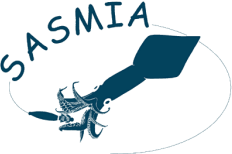 South African Squid Management Industry Association
South African Squid Management Industry Association
The South African Squid Management Industry Association (SASMIA) is the officially recognised industrial association that collectively represents permit holders, boat owners and traders in the South African squid fishery. Its primary purpose is to ensure, on behalf of its members, that the squid resource and fishery in South Africa is properly managed. This function is performed within the ambit of the Marine Living Resources Act, which is promulgated by Marine & Coastal Management (a branch of the Department of Agriculture, Forestry and Fisheries, DAFF). The core focus of SASMIA is to provide a two-way communication channel between government and the industry, and to fund squid resource research. SASMIA will support the dissemination of information from SOLSTICE research to stakeholders in Government, the squid fishing industry, as well as to fishers and their families.
 Rhodes University
Rhodes University
Rhodes University Department of Ichthyology and Fisheries Science (DIFS) is an internationally recognized, leading African academic institution that supports the study of fish and the sustainable utilization of aquatic resources through the teaching and training of students and research. With its Grahamstown partners South African Institute for Biodiversity (SAIAB) and South African Environmental Observation Network (SAEON), Rhodes University has a high concentration of fisheries related human capacity. This DIFS post-grad school trains the independent, high quality students in a research-based MSc and PhD model focussing on aquaculture, biodiversity, stock assessment, fisheries governance, fisheries economics, fish ecology, social science, ecosystem studies, stock identification and fish biology as research and capacity development priorities in the region. The university has the biggest ichthyological library in the Southern Hemisphere, with subscriptions to all primary regional and international fisheries journals.
 South African Environmental Observation Network
South African Environmental Observation Network
The oceans around South Africa play a key role in determining regional and global weather and climate patterns. The contrast between the physical variability of South Africa’s east and west coasts results in exceptionally rich and diverse marine fauna and flora occurring along the coastline and on the continental shelf. Challenges in accessing the deeper regions of the continental shelf, has severely constrained progress in scientific research and our understanding of the dynamics and ecosystem functioning. The SAEON Egagasini Node for Marine Offshore Systems addresses these challenges through long-term observations and research, modelling, data dissemination and capacity development. We also engage with young learners, as well as working closely with educators, supporting and encouraging them in their efforts to incorporate marine science into the curricula.
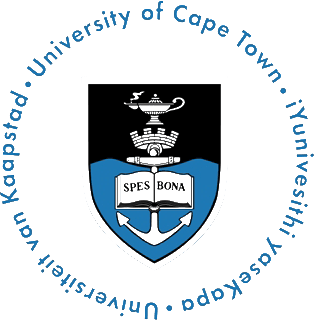 University of Cape Town
University of Cape Town
The University of Cape Town School of Economics is one of the largest departments at the university, with over 3000 full time student and roughly 40 academic staff. It also contains a number of research units, one of which is the Environmental Policy Research Unit (EPRU), which seeks to enhance environmental policy-making in South Africa through rigorous policy research and extension in order to attain sustainable development and poverty reduction. EPRU is funded by the Swedish International Development Cooperation Agency (SIDA) through the Environment for Development (EfD) initiative managed by the Environmental Economics Unit at Goteborg University.
 Institute of Marine Sciences (IMS)
Institute of Marine Sciences (IMS)
The University of Dar es Salaam Institute of Marine Sciences (IMS) in Zanzibar, Tanzania, is one of the oldest marine science institutions in the Western Indian Ocean. Established by Government decree in 1978, IMS conducts research and training in all aspects of marine science at under-graduate, MSc and PhD level, and hosts the National Oceanographic Data Centre. Its Marine Biology and Resources Management (MBRM) section focuses on biological oceanography, ocean productivity, fisheries, marine botany, marine mammals, coastal and marine resources (estuaries and mangroves, seagrass beds and coral reefs), socio-economics and resource management; the Physical and Environmental Marine Sciences (PEMS) section focuses on chemical oceanography (natural products, marine pollution, and ocean – land - atmosphere interactions), as well as physical oceanography, marine geology, geophysics and marine technology.
 Western Indian Ocean Marine Science Association
Western Indian Ocean Marine Science Association
The Western Indian Ocean Marine Science Association (WIOMSA) is a regional professional, non-governmental, non-profit membership organization, registered in Zanzibar, Tanzania. WIOMSA is dedicated to promoting the educational, scientific and technological development of all aspects of marine sciences throughout the WIO region, with a view toward sustaining the use and conservation of its marine resources. The organization's inter-disciplinary memberships consist of marine scientists, coastal practitioners, and institutions involved in the advancement of marine science research and development. WIOMSA provides a forum for communication and exchange of information and fosters inter-institutional linkage within and beyond the region; supports marine research by offering research grants; implements programs to build the capacity of marine scientists and coastal management practitioners; and works to promote policy dialogue on key topics by organizing meetings and seminars on the findings and policy implications of science.
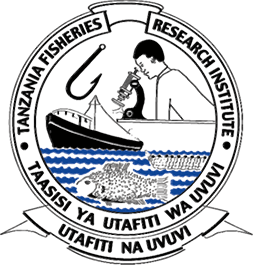 Tanzania Fisheries Research Institute (TAFIRI)
Tanzania Fisheries Research Institute (TAFIRI)
Tanzania Fisheries Research Institute (TAFIRI) was established in 1980 to promote, conduct, and co-ordinate fisheries research in Tanzania and has operated independently since 1983. The institute comprises four Centres and one Substation: Mwanza Centre and Sota Substation on Lake Victoria, Kigoma Centre on Lake Tanganyika, Kyela Centre on Lake Nyasa (Malawi) and Dar es Salaam Centre on the Indian Ocean. TAFIRI’s mission is to promote, conduct and manage fisheries research and consultancy for sustainable development of fisheries in Tanzania.
 WWF Tanzania
WWF Tanzania
WWF Tanzania is a Non-Governmental Organization (NGO) based in in Dar es Salaam. WWF Tanzania operates in areas with some of the most famous aquatic and terrestrial habitats in the world; including the Rufiji, Mafia and Kilwa Seascapes. These habitats are not only rich in diversity of flora and fauna but also support economic development and subsistence livelihoods. Engaging with the Government and the Community, WWF-Tanzania works to improve socio-economic well-being of coastal communities through sustainable, participatory and equitable use and protection of fisheries & other marine resources. This includes promoting collaborative fisheries management, raising awareness of fisheries and marine environmental issues, strengthening livelihoods by improving the environment for small-scale enterprises, protection of key habitats and species, and monitoring to provide data for management.
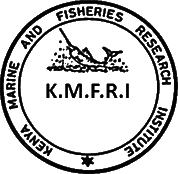 Kenya Marine and Fisheries Research Institute (KMFRI)
Kenya Marine and Fisheries Research Institute (KMFRI)
Kenya Marine and Fisheries Research Institute (KMFRI) was established in 1979 as a State Corporation, which was formally recognized as a national research institution in 2013. KMFRl's mandate is to undertake research in marine and freshwater fisheries, aquaculture, environmental and ecological studies, and marine research, including chemical and physical oceanography, in order to provide scientific data and information for sustainable exploitation, management and conservation of Kenya's fisheries and other aquatic resources, and contribute to National strategies of food security, poverty alleviation, clean environment and creation of employment.
 Coastal Oceans Research and Development – Indian Ocean
Coastal Oceans Research and Development – Indian Ocean
CORDIO East Africa is a research and conservation organisation focused on marine and coastal ecosystems in the Western Indian Ocean (WIO), with the aim of generating knowledge to create solutions that benefit ecosystems and people. CORDIO’s priority focus is on coral reefs, covering topics such as climate change, resilience, long term monitoring, artisanal fisheries, community based management approaches, mitigating climate change impacts and endangered species protection. CORDIO operates through three guiding principles: (i) Generating knowledge through applied research to find Solutions to managing marine ecosystems; (2) implementing conservation action at different scales by empowering coastal communities to manage their own marine resources, by partnering with government to address national objectives, and by disseminating clear, synthesized information for decision makers; (3) Partnerships and capacity: helping to build the next generation of marine scientists and decision-makers.
 University of Seychelles
University of Seychelles
In March 2015, the University of Seychelles established the James Michel Blue Economy Research Institute (BERI). The purpose of BERI is to create an active, autonomous, regional knowledge and research network to facilitate the development of partnerships and research, advance sustainability initiatives, and identify and coordinate synergies between local and international research partners with a focus on direct and indirect research. Research areas include: Blue Economy strategies and case studies; social and cultural aspects of the Blue Economy; ocean governance; ecosystem change and modelling; ecosystem services; renewable energy; biotechnology; sea-based products, fisheries and aquaculture; maritime transport and services; coastal and marine ecotourism; climate change; disaster risk reduction; pollution and waste management. BERI operates within the Faculty of Business and Sustainable Development and works closely with the Department of Environment.
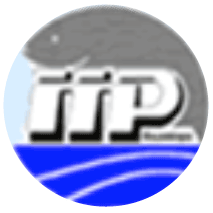 Mozambique National Institute of Fisheries Research
Mozambique National Institute of Fisheries Research
The Instituto Nacional de Investigação Pesqueira (IIP) - Mozambiques National Institute of Fisheries Research is a state institution under the Ministry of Sea, Inland Waters and Fisheries, entitled to conduct aquatic (marine and inland) research and monitoring in Mozambican waters. IIP is the national leading marine research institution, with primary purpose to provide advice to the Government on aquaculture, fisheries, aquatic biodiversity, ecosystem and environment. IIP has conducted a number of national surveys and research activities, and participates in regional and international research projects related to fisheries and oceanography.
 Institut Halieutique et des Sciences Marines (IH.SM)
Institut Halieutique et des Sciences Marines (IH.SM)
IH.SM was created in 1992 by merging the Marine Station, the Applied Oceanography course and the High Training Fishery Unit of the University of Toliara, Madagascar. Its mission is training and research in the field of marine sciences, fisheries and aquaculture, and marine and coastal environment. The IH.SM is responsible for the Training of Senior Technicians - fisheries engineers, marine scientists and biological oceanographers at undergraduate and post-graduate level, and also provides training and capacity building to companies tailored to their needs. IH.SM hosts the Malagasy National Oceanographic Data Centre.